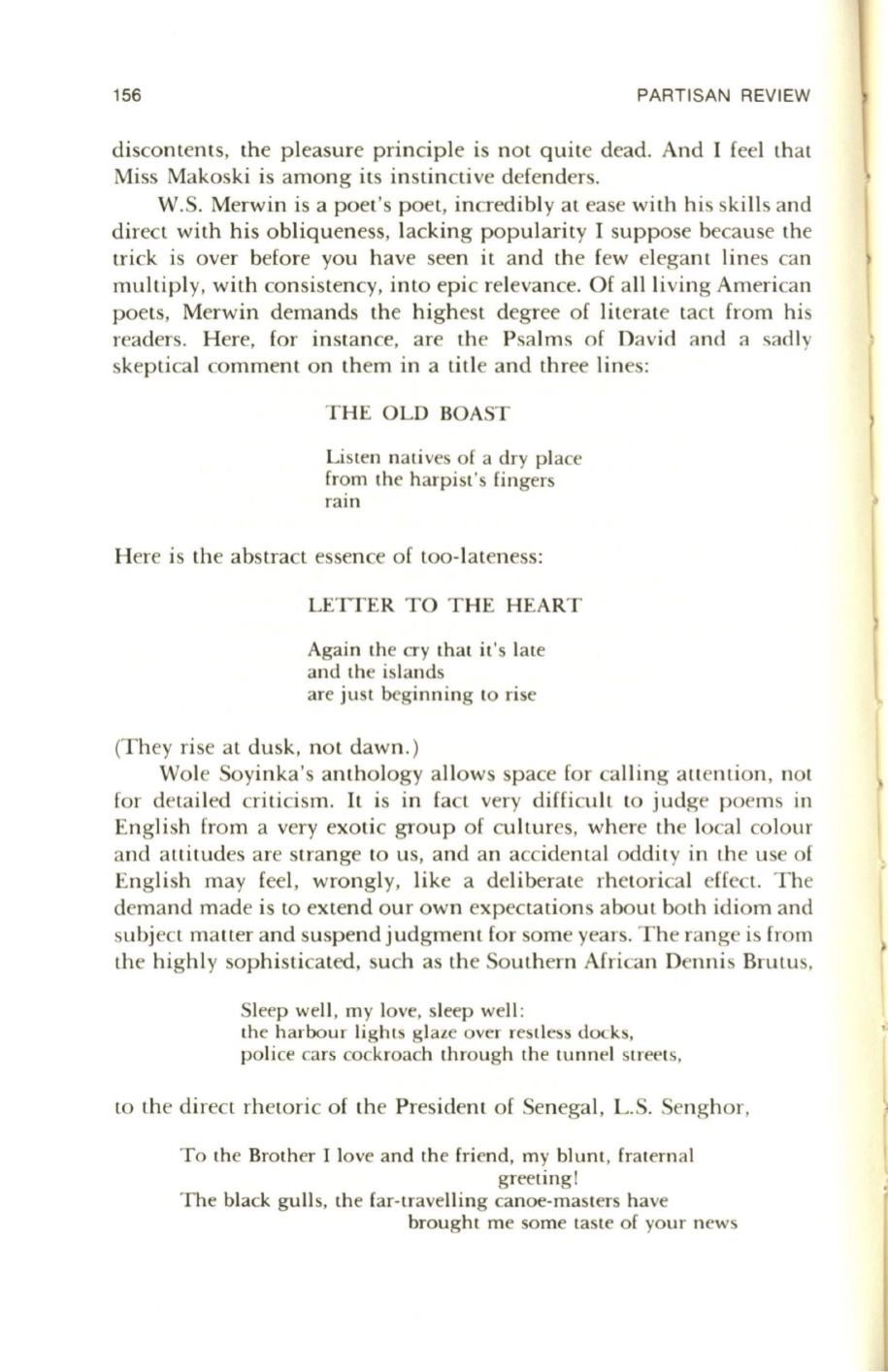
156
PARTISAN REVIEW
discontents, the pleasure principle is not quite dead. And I feel that
Miss Makoski is among its instincti ve defenders.
W.S . Merwin is a poet's poet, incredibly at ease with his skills and
direct with his obliqueness, lacking popularity I suppose because the
trick is over before you have seen it and the few elegant lines can
multiply, with consistency, into epic relevance. Of all living American
poets, Merwin demands the highest degree of literate tact from his
readers. Here, for instance, are the Psalms of David and a sadly
skeptical comment on them in a title and three lines:
THE OLD BOAST
Listen natives of a dry place
fr<:>m the harpist's fingers
ram
Here is the abstract essence of too-lateness:
LETTER TO THE HEART
Again the cry that it's late
and the islands
are just beginning
LO
rise
(They rise at dusk, not dawn.)
Wole Soyinka's anthology allows space for calling attention, not
for detailed criticism. It is in fact very difficult to judge poems in
English from a very exotic group of cultures, where the loca l colour
and attitudes are strange to us, and an accidental oddity in the use of
English may feel, wrongly, like a deliberate rhetorical effect. The
demand made is
to
extend our own expectations about both idiom and
subject matter and suspend judgment for some years. The range is from
the highly sophisticated, such as the Southern African Dennis Brutus,
Sleep well,
my
love,
sleep
well:
the harbour lights glaze over restless docks,
police cars cockroach through the tunnel streets,
to
the direct rhetoric of the President of Senegal, L.S. Senghor,
To the Brother I
love
and the friend, my blunt, fraternal
greeting
I
The
black gulls, the far-travelling canoe-masters have
brought
me some
taste of your news


